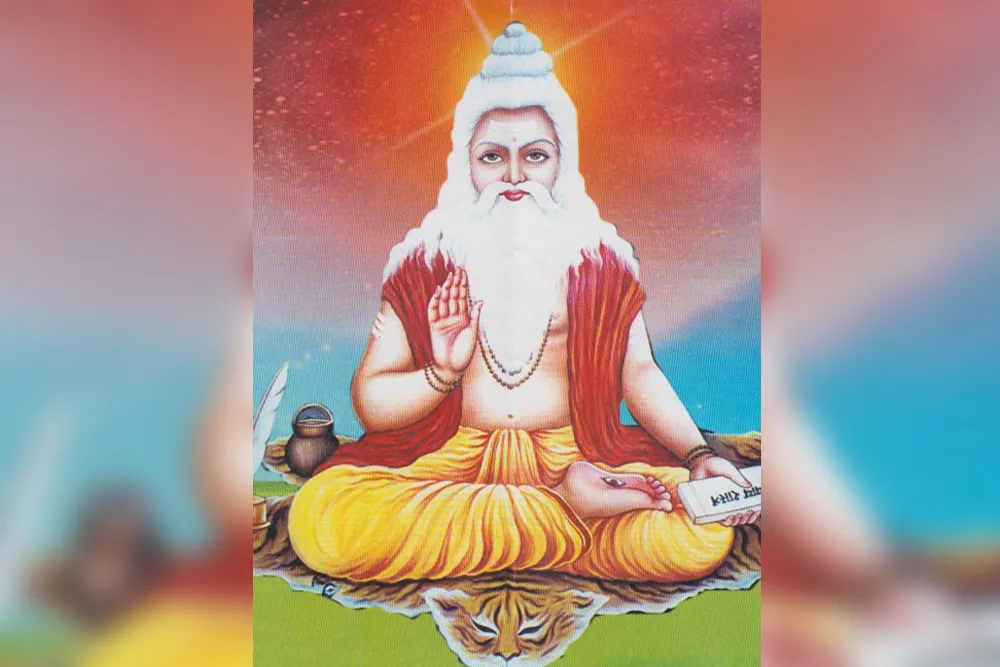Explore Gotras

Gautama: A Revered Sage in Hindu Tradition
Sage Gautama is one of the most renowned sages in Hindu tradition, known for his wisdom, spiritual discipline, and contributions to the Vedic and philosophical traditions. He is one of the Saptarishis (Seven Great Sages) and played a vital role in shaping Hindu ethics, rituals, and dharma. His name is associated with the Gautama Gotra, and he is also credited with composing the Gautama Dharma Sutra, an important text on Hindu law and morality.
1. Origins and Lineage
- Gautama in the Rishi Tradition: Sage Gautama is considered one of the most revered sages of ancient India, recognized for his contributions to Vedic literature and spiritual teachings.
- Parents: There are different accounts of his parentage. He is often described as the son of Sage Rahugana and belonged to the lineage of Angiras Rishi.
- Association with Gotra: The Gautama Gotra is named after him, and many Brahmin families trace their ancestry to this esteemed lineage.
2. Gautama’s Role in Hindu Mythology
- Gautama’s Contributions: He is remembered for his philosophical wisdom, spiritual austerities, and deep knowledge of the Vedas.
- Stories in Hindu Texts:
- He appears in various Puranas and Hindu scriptures, where he is revered as a teacher and philosopher.
- He is credited with composing the Gautama Dharma Sutra, one of the earliest Hindu legal texts that laid the foundation for Hindu ethics and social structure.
- Stories in Hindu Texts:
- Connection with Other Sages:
- He was associated with other great sages like Vashishtha, Vishwamitra, and Bharadvaja.
- His philosophical contributions influenced later Hindu traditions, including the Nyaya school of logic, founded by Sage Akshapada Gautama (who may have been his descendant or another sage from the same lineage).
- Connection with Other Sages:
3. Gautama’s Contribution to the Vedic Tradition
- Vedic Knowledge and Teachings:
- Sage Gautama played a crucial role in preserving and spreading Vedic wisdom, particularly in yajnas (sacrificial rituals), moral conduct, and justice.
- His Gautama Dharma Sutra discusses laws, duties, and social ethics.
- Vedic Knowledge and Teachings:
- Teachings on Dharma and Ethics:
- His teachings emphasize truthfulness, non-violence, respect for teachers, and righteous living.
- His work influenced later Hindu legal and ethical traditions, shaping how dharma (righteousness) was understood and practiced.
- Teachings on Dharma and Ethics:
4. Gautama’s Role in Hindu Tradition
- The Story of Gautama and Ahalya:
- Sage Gautama was married to Ahalya, one of the most beautiful women in Hindu mythology.
- According to the Ramayana, Ahalya was tricked by Indra, who took the form of Gautama and approached her. When Gautama discovered the deception, he cursed Indra and turned Ahalya into a stone.
- Later, Lord Rama released Ahalya from the curse by touching her with his feet, symbolizing forgiveness and redemption.
- The Story of Gautama and Ahalya:
- Role as a Spiritual Guide:
- Gautama was highly respected as a guru who imparted knowledge to students and disciples.
- His wisdom contributed to the understanding of morality, law, and spiritual enlightenment.
- Role as a Spiritual Guide:
- Influence on Later Texts:
- His teachings and ideas were referenced in many later Hindu scriptures, including the Smritis and commentaries on dharma.
- Influence on Later Texts:
5. Gautama Gotra
- Gautama Gotra: Many Brahmin lineages follow the Gautama Gotra, considering themselves descendants of Sage Gautama’s spiritual and ethical legacy.
- Marital Traditions: As per Hindu customs, individuals from the same Gotra are traditionally prohibited from marrying each other, as they are believed to belong to the same spiritual ancestry.
6. Gautama’s Influence in Hinduism
- Spiritual Legacy: His teachings on law, dharma, and moral values continue to inspire scholars and spiritual seekers.
- Impact on Hindu Thought: His contributions to Vedic philosophy and ethical guidelines remain integral to Hindu traditions.
7. Conclusion
Sage Gautama is a highly revered figure in Hindu tradition, known for his wisdom, asceticism, and contributions to dharma and law. His spiritual and ethical legacy is preserved through the Gautama Gotra, the Gautama Dharma Sutra, and various Hindu scriptures, continuing to guide future generations on the path of righteousness and knowledge.
